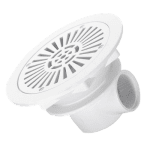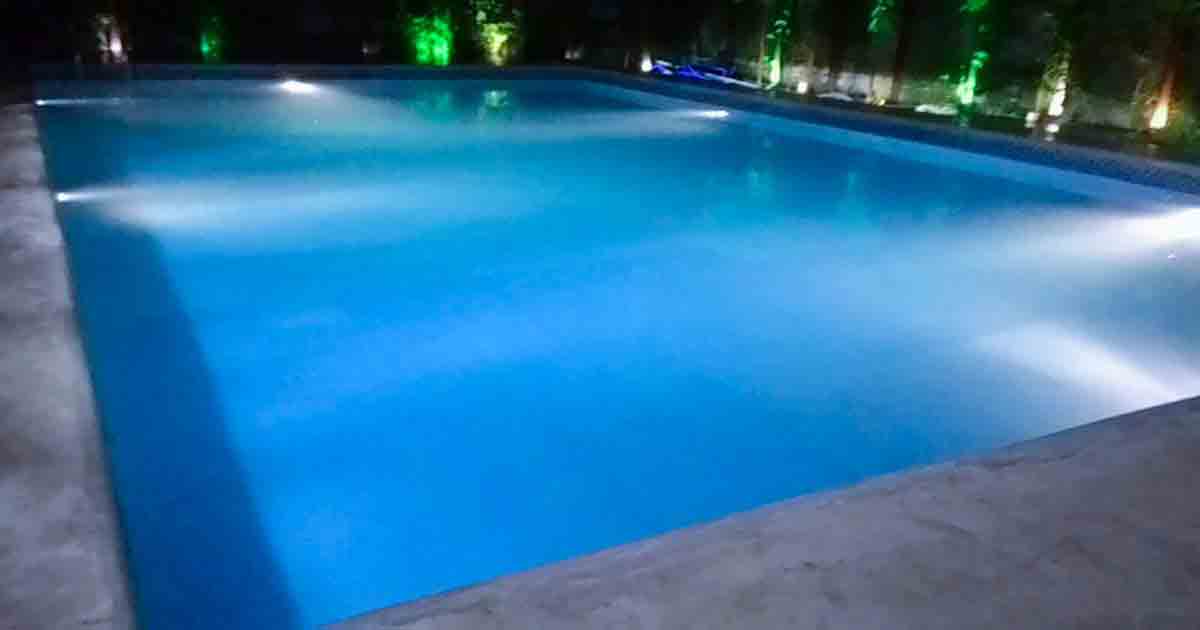Swimming pool maintenance uk
Swimming pool maintenance in the UK is essential for ensuring pools remain clean, safe, and enjoyable for users throughout the year. Whether for residential, commercial, or public pools, proper maintenance involves a combination of regular cleaning, water treatment, equipment upkeep, and adherence to health and safety regulations. Understanding the specific needs and challenges of pool maintenance in the UK ensures that pool owners and operators can effectively manage their facilities and provide a pleasant swimming experience.
1. Water Testing and Chemical Balance (Swimming pool maintenance uk)
Maintaining proper water chemistry is crucial in UK swimming pool maintenance. Regular testing of pool water ensures that pH levels, chlorine or other sanitizers, alkalinity, and calcium hardness are within recommended ranges. Water testing kits, readily available from pool supply stores or online retailers, are used to monitor these parameters. Adjustments are made as necessary to achieve optimal water balance, which not only ensures swimmer comfort but also prevents the growth of algae and bacteria that can compromise water quality.
2. Cleaning and Skimming (Swimming pool maintenance uk)
Regular cleaning routines are essential to keep UK swimming pools free of debris and contaminants. Skimming the water’s surface daily with a skimmer net helps remove leaves, insects, and other floating debris. This prevents such debris from sinking to the bottom of the pool, where it can be more difficult to remove and can contribute to water discoloration and reduced circulation. Weekly brushing of pool walls and tiles helps prevent algae buildup and ensures effective filtration.
3. Vacuuming and Filtration (Swimming pool maintenance uk)
Vacuuming the pool floor and walls on a weekly basis is necessary to remove dirt and debris that have settled. Manual or automatic pool vacuums are used depending on the size and design of the pool. The pool’s filtration system plays a critical role in removing fine particles and maintaining water clarity. Filters should be cleaned or backwashed regularly to ensure optimal performance. Common filter types in the UK include sand filters, cartridge filters, and diatomaceous earth (DE) filters, each requiring specific maintenance procedures.
4. Equipment Maintenance (Swimming pool maintenance uk)
Regular inspection and maintenance of pool equipment are essential to prevent costly repairs and downtime. This includes checking and lubricating pump seals and gaskets, inspecting hoses and fittings for leaks, and ensuring proper operation of heaters and automated chemical feeders. In the UK, where weather conditions can vary, protecting equipment from frost damage during colder months is particularly important. Properly winterizing pool equipment helps extend its lifespan and ensures it functions efficiently when the pool is reopened in spring.
5. Chemical Safety and Handling (Swimming pool maintenance uk)
Handling pool chemicals safely is paramount to prevent accidents and ensure compliance with health and safety regulations in the UK. Pool maintenance personnel should wear appropriate personal protective equipment (PPE), such as gloves and goggles, when handling chemicals. Chemicals should be stored in a secure, well-ventilated area away from heat and moisture. Proper dosing and application of chemicals are critical to maintaining water balance and preventing overdosing or underdosing, which can lead to water quality issues or equipment damage.
6. Compliance with Regulations (Swimming pool maintenance uk)
UK swimming pools must comply with regulations set forth by local authorities and health agencies. These regulations cover aspects such as water quality standards, safety signage, lifeguard requirements for public pools, and accessibility for disabled individuals. Regular inspections may be conducted to ensure compliance, and pool operators are responsible for maintaining accurate records of water tests, chemical treatments, and maintenance activities.
7. Seasonal Considerations (Swimming pool maintenance uk)
Seasonal changes in the UK climate impact swimming pool maintenance practices. In colder months, pools may be winterized to protect against freezing temperatures. This involves lowering the water level, draining and blowing out plumbing lines, adding winterizing chemicals, and covering the pool with a durable winter cover. Properly winterizing the pool prevents damage to equipment and surfaces, reducing maintenance and repair costs.
8. Professional Services (Swimming pool maintenance uk)
While many aspects of swimming pool maintenance can be managed by homeowners or facility staff, there are times when professional services are necessary. Professional pool technicians in the UK offer services such as:
- Routine Maintenance Visits: Regular inspections, cleaning, and maintenance of pool equipment and water chemistry.
- Repair Services: Diagnosis and repair of equipment malfunctions, leaks, or structural issues.
- Opening and Closing Services: Seasonal opening and closing of pools, including winterization and spring startup procedures.
9. Cost Considerations (Swimming pool maintenance uk)
The cost of swimming pool maintenance in the UK varies based on factors such as pool size, location, frequency of use, and specific maintenance requirements. Budgeting for regular cleaning supplies, water testing kits, chemicals, and occasional equipment repairs or replacements ensures that pool maintenance remains manageable and effective.
10. Training and Certification (Swimming pool maintenance uk)
Proper training and certification in swimming pool maintenance ensure that individuals responsible for pool care in the UK have the knowledge and skills to perform their duties safely and effectively. Certification programs may cover water chemistry, equipment operation, safety protocols, and regulatory compliance specific to the UK context. Ongoing training and professional development help pool operators stay informed about industry best practices and emerging technologies.
Swimming pool maintenance in the UK is essential for ensuring clean, safe, and enjoyable swimming environments. Regular upkeep includes tasks like skimming debris, vacuuming, and testing water chemistry to maintain balanced pH and chlorine levels. Seasonal opening and closing services are crucial to prepare pools for use and protect them during winter months. Professional maintenance companies offer comprehensive services tailored to individual needs, from weekly cleanings to equipment repairs. With the unpredictable UK weather, maintaining pool clarity and hygiene is vital for preventing algae growth and ensuring a pleasant swimming experience year-round.
Owning a swimming pool in the UK offers a great way to enjoy year-round swimming, but it also comes with the responsibility of maintaining it properly. While the UK’s climate isn’t always conducive to outdoor swimming year-round, many homeowners still invest in both outdoor and indoor pools for leisure, fitness, and relaxation. Whether you own a heated indoor pool or a seasonal outdoor pool, proper maintenance is crucial for ensuring water quality, safety, and the longevity of your pool.
In this article, we’ll provide a detailed guide to swimming pool maintenance in the UK, covering the key tasks, tips for managing upkeep, and costs involved.
1. Importance of Regular Pool Maintenance
Proper pool maintenance not only ensures a pleasant swimming experience but also helps to avoid costly repairs and ensures that your pool is safe for swimmers. Regular maintenance minimizes the risk of waterborne illnesses, keeps the pool water clear, and ensures that pool equipment such as filters, pumps, and heaters are functioning efficiently.
In the UK, where pools may not be used year-round due to the weather, ensuring that the pool is properly cleaned and winterized during the colder months is essential. Regular checks will also prevent algae buildup, debris accumulation, and chemical imbalances in the water.
2. Routine Cleaning and Skimming
Cleaning your pool regularly is essential to maintain good water quality. Debris such as leaves, dirt, and insects can accumulate quickly, especially in outdoor pools. Skimming the surface and cleaning the pool on a weekly basis helps to ensure that water remains clean and healthy.
- Skimming: Use a pool skimmer to remove leaves, twigs, and other debris from the water’s surface. This is particularly important in outdoor pools where debris is more likely to enter the pool. Skimming should be done regularly, ideally every day or two.
- Brushing and Scrubbing: Use a pool brush to scrub the walls and floor of the pool to prevent dirt and algae buildup. Pool walls, particularly near the waterline, are prone to the accumulation of oils and other contaminants, which can lead to unsightly stains. Brushing the pool every week or two helps to avoid these issues.
- Vacuuming: Regularly vacuum the pool floor to remove dirt and debris that sinks to the bottom. Manual vacuums, automatic pool cleaners, or robotic vacuums can be used depending on your pool’s size and your personal preference. This should be done weekly to ensure your pool is consistently clean.
3. Water Chemistry and Balancing
In the UK, maintaining the right balance of chemicals in your pool water is crucial for both safety and water clarity. The water’s pH, alkalinity, calcium hardness, and chlorine levels must be checked regularly to ensure they remain within the optimal ranges.
- Testing the Water: Use a pool testing kit to check the water’s pH, chlorine, alkalinity, and calcium hardness levels. Testing should be done at least once a week to monitor changes in water chemistry. Many pool supply stores or online suppliers also offer testing services.
- pH Levels: Pool water should have a pH level between 7.2 and 7.6. A low pH can cause skin and eye irritation, as well as corrosion of pool equipment. A high pH can lead to scaling and cloudy water. Adjust pH using pH increaser or pH reducer as necessary.
- Chlorine Levels: Chlorine is essential for disinfecting pool water. The ideal range for free chlorine is between 1.0 and 3.0 ppm (parts per million). Chlorine can be added in tablet, liquid, or granular form, depending on your preference and pool size.
- Alkalinity and Calcium Hardness: Total alkalinity should be maintained between 80-120 ppm, while calcium hardness should range from 200-400 ppm. These levels help stabilize the pH and prevent corrosion or scaling.
4. Filter and Pump Maintenance
Your pool’s filtration system is the heart of the pool’s circulation system, helping to keep the water clean by removing dirt and debris. Over time, pool filters can become clogged, and pumps can experience issues, which can hinder the performance of the entire system.
- Cleaning the Filter: There are three main types of pool filters—sand, cartridge, and diatomaceous earth (DE). Each type of filter requires regular cleaning and maintenance. Sand filters need to be backwashed to remove debris; cartridge filters should be hosed down, and DE filters require regular cleaning and recharging with fresh diatomaceous earth. Filters should be cleaned every month or as needed, depending on your pool’s usage.
- Checking the Pump: Regularly check the pool pump to ensure it is functioning properly. The pump circulates water through the filtration system and ensures water is properly distributed throughout the pool. Clean the pump basket, and check for signs of leaks or unusual noises that might indicate a problem. The pump should run for 8-12 hours a day to maintain proper water circulation.
5. Heater and Pool Cover Maintenance
If your pool is heated, particularly in the cooler months, maintaining your heater is vital to ensure consistent water temperature. Additionally, using a pool cover when the pool is not in use helps reduce debris and saves on energy costs by retaining heat.
- Heating System Maintenance: Check the pool heater regularly for any signs of wear or malfunction. If you have a gas heater, check for any leaks, and ensure the pilot light is working correctly. Electric heaters should also be serviced periodically to ensure they are operating at maximum efficiency.
- Pool Cover: A high-quality pool cover is essential in the UK, especially for outdoor pools during colder months. A pool cover helps keep the pool clean, protects against debris, and reduces chemical consumption and energy costs by keeping the water warmer. Make sure the cover is securely fastened and free of tears, as damaged covers will lose their effectiveness.
6. Seasonal Pool Maintenance
In the UK, where pools may be closed during the colder months, it’s essential to properly close your pool at the end of the swimming season. This helps to protect the pool from freezing temperatures and ensures it remains in good condition when it’s time to reopen.
- Winterizing the Pool: For outdoor pools that are not heated, it’s important to lower the water level, clean the pool thoroughly, and add winterizing chemicals before closing it for the winter. Drain and store pool equipment, such as pumps and filters, to protect them from frost damage. Cover the pool securely to prevent debris from entering and to protect it from the elements.
- Reopening the Pool: When reopening the pool, remove the cover, check the water chemistry, and clean the pool before testing the system. Ensure all equipment is reassembled and in good working order. You may need to shock the pool with chlorine or other chemicals to clear up any residual contamination from the off-season.
Conclusion
Effective swimming pool maintenance in the UK requires attention to detail, adherence to regulations, and proactive care of equipment and water chemistry. By implementing a structured maintenance plan that includes regular cleaning, water testing, equipment inspection, and compliance with safety standards, pool owners and operators can provide a safe and enjoyable swimming environment year-round. Investing in proper training and staying updated with industry standards ensures that UK swimming pools remain clean, inviting, and compliant with health and safety regulations for all users.


















